

— Products —
 Consumer hotline +8618073152920
Consumer hotline +8618073152920 WhatsApp:+8615367865107
Address:Room 102, District D, Houhu Industrial Park, Yuelu District, Changsha City, Hunan Province, China
All products
Soil electrical conductivity sensors are devices designed to measure the ability of soil to conduct an electric current. This property is an important indicator of soil health, fertility, and hydration status, as well as its ability to support plant growth. Soil electrical conductivity sensors typically consist of metal probes that are inserted into the soil. The probes are connected to an electronic circuit that measures the resistance to electrical current flow between the ···
Tel/WhatsApp:+8615367865107
Email:Arvin@niubol.com +Nearly 100 partner company in more than 68 countries. We are committed to providing high-quality, practical products to meet your needs and help you solve problems.Product Details
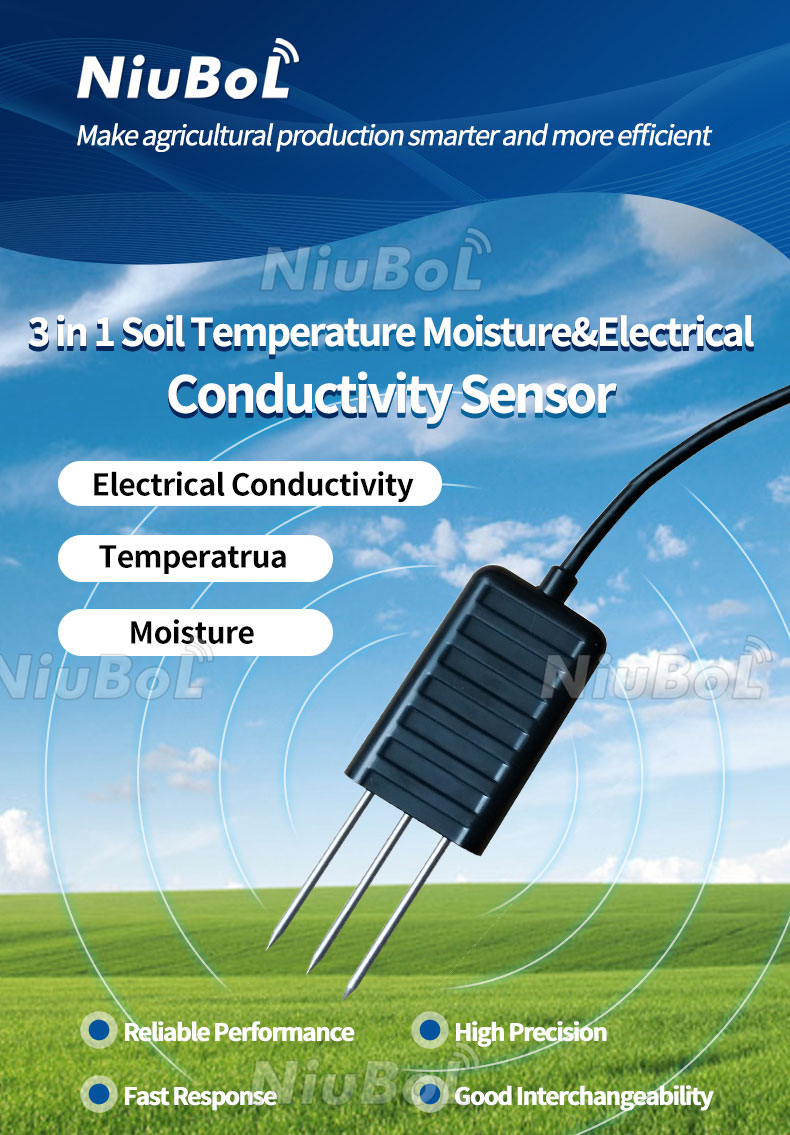
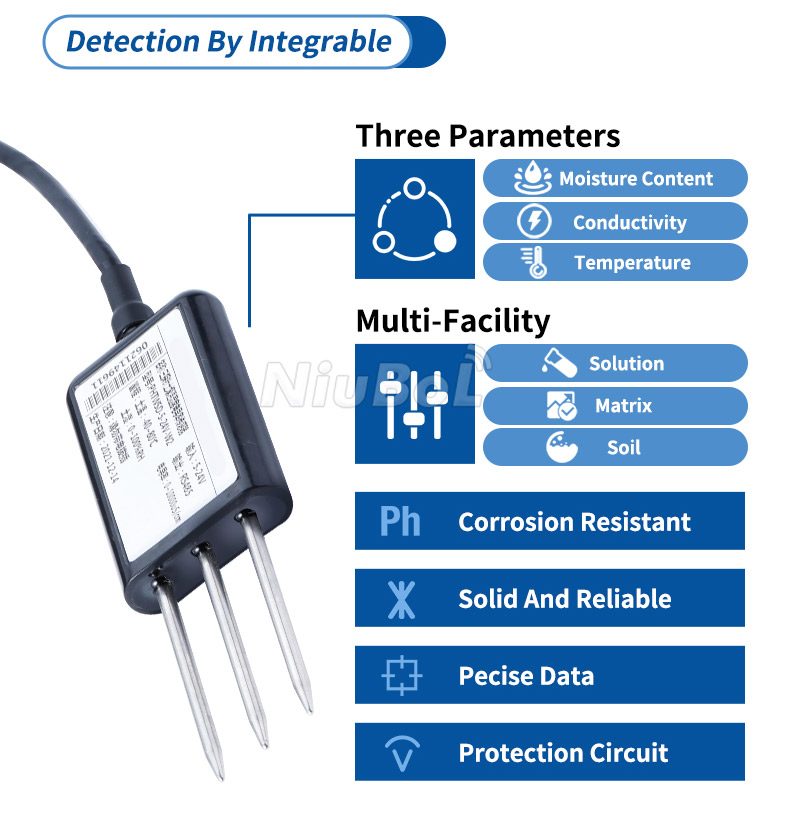
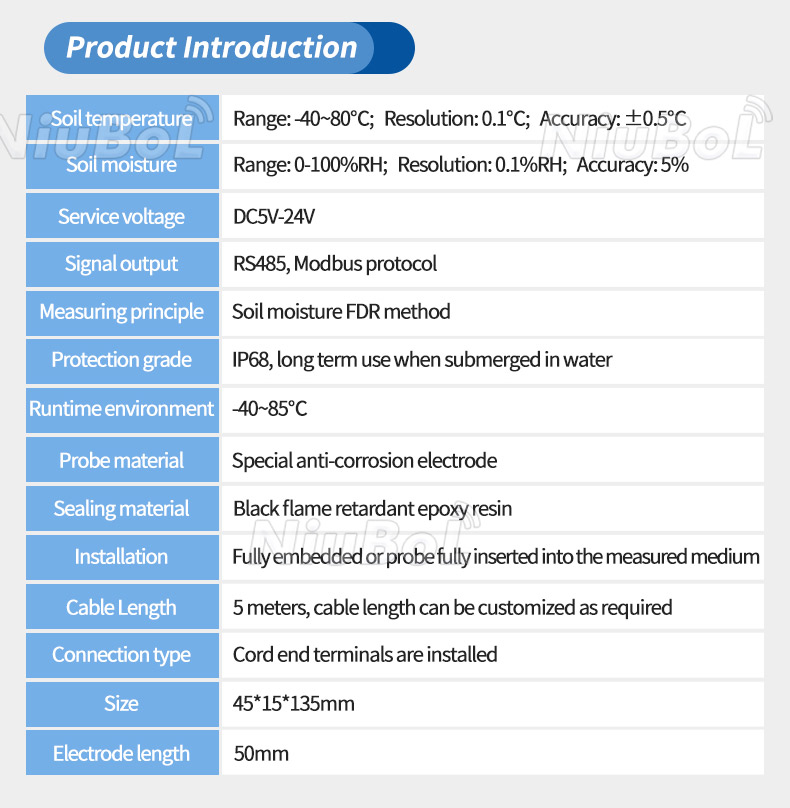
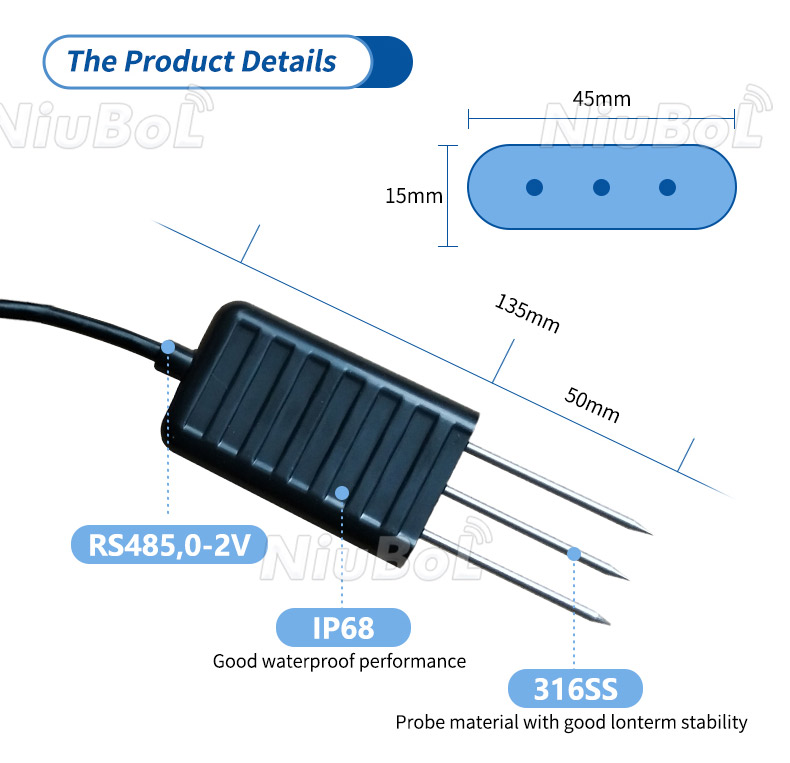
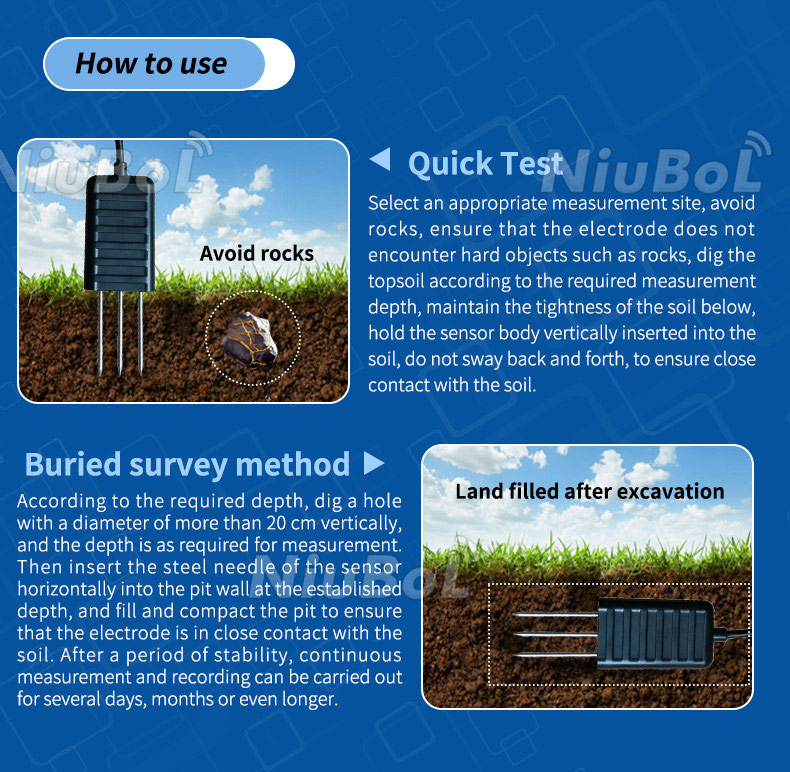
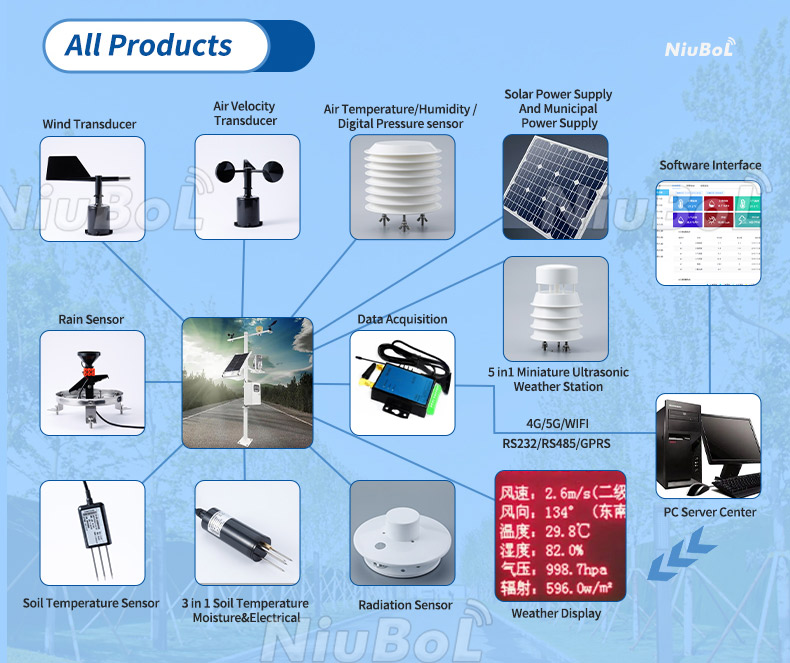
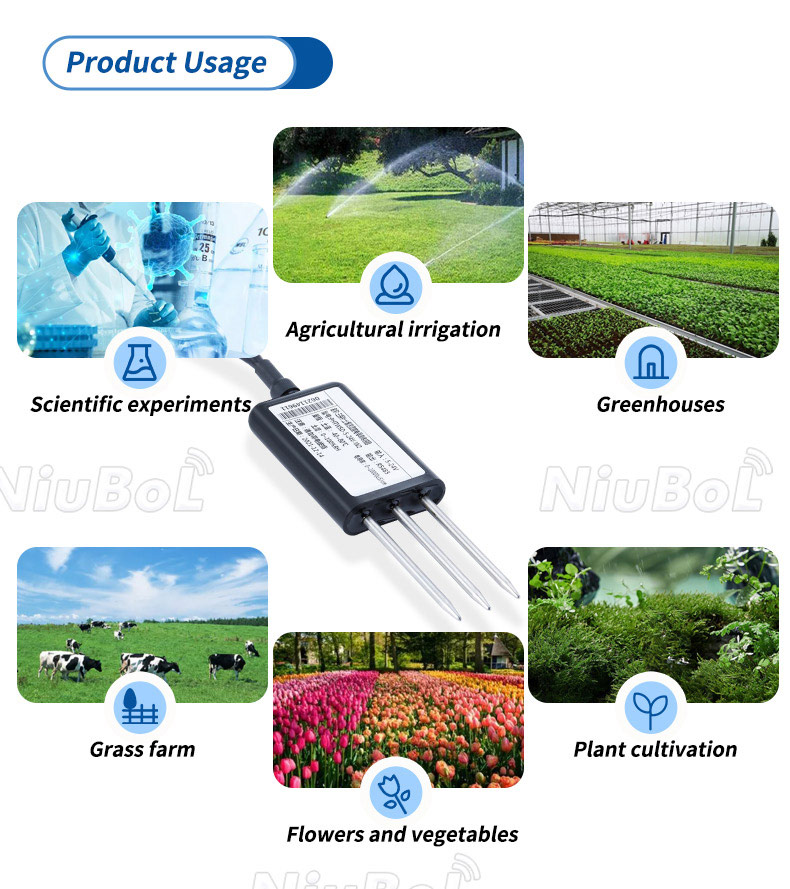
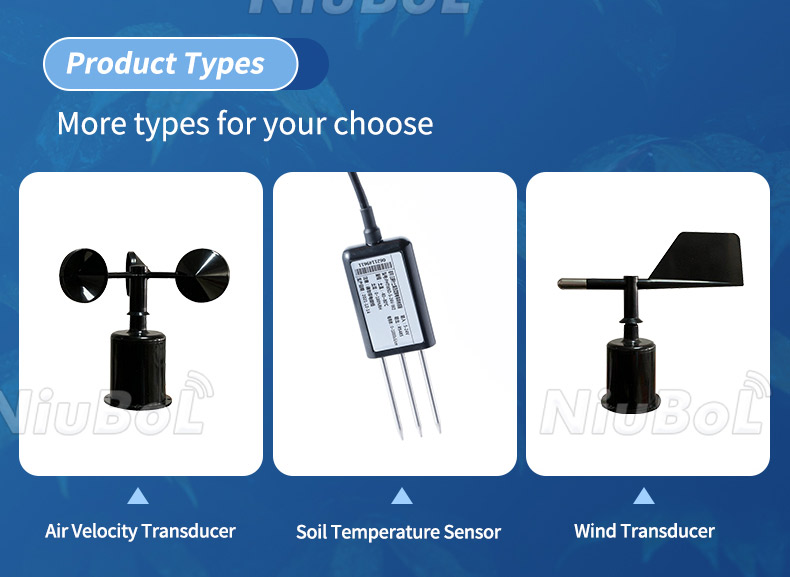
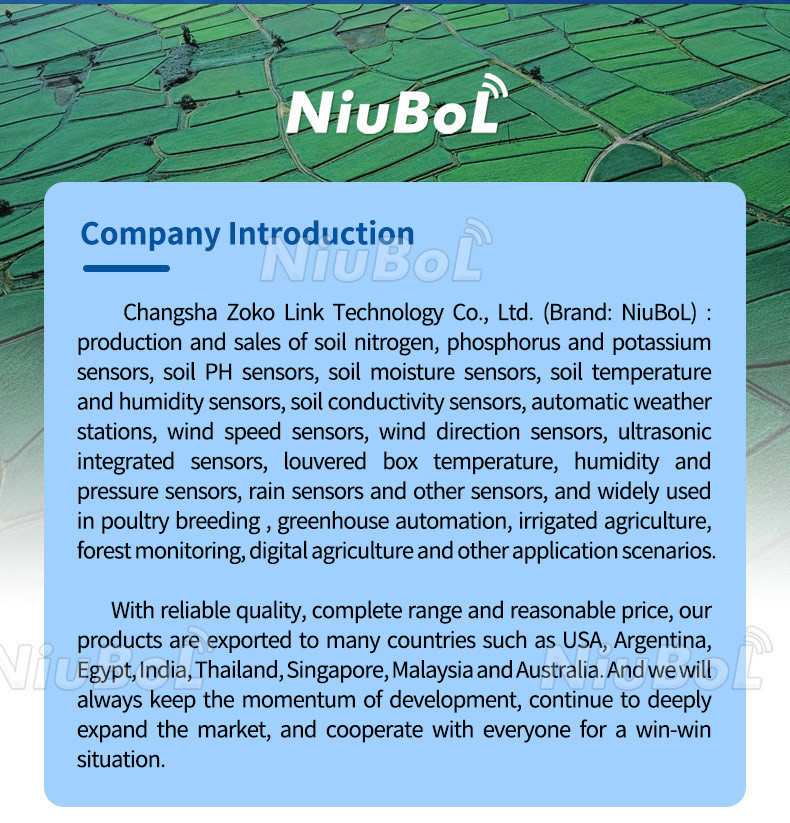


Soil electrical conductivity sensors are devices designed to measure the ability of soil to conduct an electric current. This property is an important indicator of soil health, fertility, and hydration status, as well as its ability to support plant growth.
Soil electrical conductivity sensors typically consist of metal probes that are inserted into the soil. The probes are connected to an electronic circuit that measures the resistance to electrical current flow between the probes. The higher the electrical conductivity of the soil, the lower the resistance to current flow and vice versa.
The functioning of these sensors is based on the principle that soil contains various salts and minerals that can conduct electricity when dissolved in water. The concentration of these solutes, as well as the moisture content in the soil, directly affects its electrical conductivity.
These sensors typically work by applying a known voltage across the soil and measuring the resulting current. The ratio of voltage to current gives the electrical conductivity of the soil, which can then be used to infer its nutritional status, water content, and other soil characteristics.
Soil electrical conductivity sensors are useful tools for farmers, agronomists, and environmental scientists to monitor soil health and manage irrigation and fertilizer applications. By measuring the electrical conductivity of soil at different depths and locations, they can identify areas of soil with high or low salinity, determine nutrient deficiencies or excesses, and adjust management practices accordingly.
Overall, soil electrical conductivity sensors are a valuable tool for farmers, researchers, and environmentalists, providing critical information for sustainable soil management and environmental protection.
Soil conductivity sensor is a kind of instrument used to measure the conductivity in the soil, its role and value are mainly reflected in the following aspects:
Assessing soil quality: Soil conductivity can reflect parameters such as salinity, ion concentration and water content in the soil, which in turn assesses the fertility and quality of the soil. This is important for agricultural production and land management as these parameters can influence plant growth and soil fertility.
Guiding agricultural production: By measuring soil conductivity, the moisture status and salt content of the soil can be learnt, thus guiding agricultural production. For example, farmers can rationally adjust the irrigation method, irrigation amount and irrigation time according to the changing law of soil conductivity to improve the yield and quality of crops.
Monitoring the degree of soil salinity: High conductivity usually means high soil salinity content, while low conductivity indicates low soil salinity content. Based on the measurement of soil conductivity, farmers can choose suitable crops to plant or take corresponding measures to improve the soil to increase the adaptability and growth efficiency of crops.
Environmental monitoring and management: Changes in soil conductivity can reflect pollutants in the soil. Certain pollutants will affect the conductivity of the soil, through the measurement of changes in soil conductivity, soil pollution can be detected and assessed in a timely manner, providing a scientific basis for environmental protection and governance.
Promote the development of smart agriculture: with the development of smart agriculture, the soil conductivity sensor can better monitor the conductivity in the soil. Sensors as monitoring sensing equipment, is the "eyes" and "ears" of the smart greenhouse, directly determines the accuracy of the monitoring data. In smart agriculture, the sensor can monitor the soil parameters in real time, provide a scientific basis for agricultural decision-making, reduce the intensity and difficulty of manual labour, and effectively feel the convenience of science and technology.
In summary, soil conductivity sensors in agriculture, environmental monitoring, land management and other fields have a wide range of application prospects and value.
Sensors & Weather Stations Catalog
Agriculture Sensors and Weather Stations Catalog-NiuBoL.pdf
Weather Stations Catalog-NiuBoL.pdf
Related recommendations
 Multi-Depth Soil Sensor RS485
Multi-Depth Soil Sensor RS485 TDR Soil Moisture Sensor
TDR Soil Moisture Sensor Pyranometer Solar Radiation Sensors
Pyranometer Solar Radiation Sensors Soil ph sensor
Soil ph sensor Tipping Bucket Rain Gauge
Tipping Bucket Rain Gauge Air Temperature and Humidity Sensor
Air Temperature and Humidity Sensor
Screenshot, WhatsApp to identify the QR code
WhatsApp number:+8615367865107
(Click on WhatsApp to copy and add friends)
